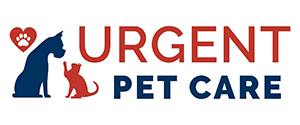- Do you subscribe to Dharma Dog Training’s Newsletter? You should.
- A Unique Campaign from The Humane Society of the United States
- Rabid bats in Omaha- Stay safe, prepared with these tips
- Springtime Activities in Omaha
- Mill Dog Monthly from Bailing Out Benji
- World Spay Day, Legislative Alert in Nebraska
- Attend the Nebraska Rescue Council’s monthly meeting this Saturday
- Five Hard-to-Ignore Reasons to Adopt!
- Paws in Pink to Benefit Breast Cancer Foundation
- VCA, Inc. Acquires MidWest Vet Specialists from Kansas State University
Pet Euthanasia- you’ve got options. Help from The Pet Clinic

Euthanasia is often a necessary practice that pet owners must be informed about. When your family pet is beyond the point of recovery and its quality of life is suffering greatly, it’s your responsibility to decide what’s best for your animal as it makes its way toward the Rainbow Bridge.
Euthanasia the peaceful ending of an animal’s life utilizing an anesthetic overdose. Euthanasia should be considered when a meaningful recovery is not available or when an animal is suffering.
It’s sometimes a difficult subject to even think about, let alone actually going through the process of seeing the end of your animal’s life. Hopefully, with the following information, you’ll have an easier time of it. Knowing what to do when the end comes can bring comfort. The unknown is hard to deal with. Many will tell you that the routine, steps, and processes involved have helped them deal with loss. The hardest part is figuring out what to do after your pet is gone- we’ll tell you where to look for help on that, too.
We’ve consulted five businesses, organizations that help pet owners through the process. From how to know when it’s time to what you need to manage grief, we hope to cover a large portion of the process here. Read, share, ask questions- this series is meant to be helpful and informative. Just know there are many choices to make, but many professionals out there to help you along the way as well. We’ll put some of them side-by-side here so you can decide which path to travel.
“To live in hearts we leave behind is not to die”
-Thomas Campbell
Dr. Troy Everson on Omaha’s Pet Clinic was kind enough to give us a look into what family veterinarian practices can do for you when the time comes.
Q: At what point should you consider euthanasia for your pet? Are there a certain number of measures or a checklist one can consult when deciding that it is (or isn’t) time?
A: There are checklists that have been made available but I find that an honest conversation with the pet owners is often more useful. Most people are concerned that they won’t know when the right time to euthanize will be. I reassure the owners that the mere fact that they are concerned enough about their pet’s welfare to question their own judgment usually means that any decline in quality of life below an acceptable level will quickly be recognized. We encourage owners to discuss with us quality of life questions and concerns and find that many times we only need to listen.
Q: Describe the process of euthanasia clinically.
A: We start with visiting about what the owners are feeling and seeing with their animals at home. Sometimes I am asked to examine and evaluate the patients to determine the extent of the current medical issues. If appropriate, I then discuss with the owners their options for hospice/comfort care vs. euthanasia. If owners elect to euthanize we discuss whether they would like to do the euthanasia at that time or if they would like some other arrangement , like home euthanasia or moving to the outside back lawn for euthanasia. I discuss the medications and what the owners are to expect. We then administer a mild sedative to the patient. This takes approximately 5 minutes to produce a mild level of sedation, upon which an intravenous medication is administered that causes an excessively deep layer of anesthesia in which the patient gently passes away within 1-2 minutes. The whole process is very smooth and gentle.
Q: What can you do with your pet’s remains?
A: We offer private cremation and group cremation services with a local service.
Q: What can you do to manage grief after your animal is gone?
A: The pain associated with the death of a pet can be monumental. And working through the loss of a pet is more than enough to process without additional negative emotions like guilt and regret. I have found that so many of us carry guilt for decisions that we make and that I try to help the owners understand that that their decision to euthanize was the best decision for the pet’s quality of life. Once owners release themselves from guilt they can begin the slow process of healing. For those that need additional help there are grief counseling services that we can direct them to.
Q: Where can pet owners have euthanasia services performed? Grief counseling access available where?
A: We offer euthanasia services at our clinic and house-call euthanasia services are available for some circumstances. There is also a local veterinarian that provides house call euthanasia services that we have recommended. Grief counseling is available through the Nebraska Humane Society at a monthly meeting of the Pet Loss Support Group.
Q: What are the differences in practices from one place to another?
A: Some variations in the euthanasia procedure and support can be seen from clinic to clinic and it is always good to choose a clinic that offers end of life services that meet the needs of the pet and owners.
Through our research and by hearing from Dr. Everson (plus the four other groups that’ll we’ll feature in this series), we can honestly and objectively say your first stop when addressing the initial questions about this time in your pet’s life should be your family veterinarian. Hopefully, with sound advice, introspection, and a close look into all options, you’ll be able to make the best decision for yourself and your furry friend.
Related Posts
Latest News
-
3 Tips for Pet Owners on Training Rescue Dogs
Owning a rescue dog can take some work compared to...
- Posted 3 weeks ago
- 0
-
Choosing the Right Pet for Your Lifestyle
Are you thinking about getting a pet but unsure what...
- Posted 1 month ago
- 0
-
How to Make Your Rescue Pet as Comfortable as Possible
Did you bring home a new pet from a shelter...
- Posted 2 months ago
- 0
-
How Having A Pet Can Change Your Life
Having a pet can open your heart in ways that...
- Posted 7 months ago
- 0
-
How To Improve The Life Of Your Senior Pet
Do you have an elderly fur baby and want to...
- Posted 7 months ago
- 0
-
Springtime Activities To Enjoy With Your Furry Friends
Are you preparing for warmer weather and want some ideas...
- Posted 8 months ago
- 0
-
Pros And Cons Of Microchipping Your Pets
Have you considered whether your pets should be microchipped and...
- Posted 9 months ago
- 0






















You must be logged in to post a comment Login